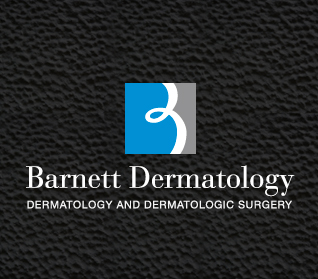NEWS & MEDIA
News & Media: Blog
<- Back to Articles Overview
07/06/11
Vitamins and Nutrients: Their Role in Skin Health
We all know that eating a balanced diet that includes a variety of valuable nutrients and vitamins is a key element of a healthy life. Not only do they help our bodies maintain critical internal functions, but they play an important role in our skin, hair and nail health. Read on to learn a little more about certain vitamins and minerals that are important to the health of your skin, hair and nails.
Vitamin D
It is synthesized in the skin in response to ultraviolet light and is also found in certain foods such as salmon, sardines, mackerel, orange juice and fortified dairy products. Vitamin D has been shown to play an important role in the activation of immune cells needed to fight infection, and recent studies have linked low vitamin D levels to a higher risk of colon and breast cancer. Nonetheless, increasing awareness of the health risks associated with sun exposure and an increase in the number of indoor jobs have led to lower vitamin D levels in the general population.
One way to find out your vitamin D levels is to get them tested. Based on your result, your doctor can help you determine how to get the recommended amount of vitamin D through a combination of supplements and diet. Supplements are often used to replenish vitamin D levels in doses from 200 to 2,000 international units. Given the risk of skin cancer with sun exposure, most dermatological societies do not support getting vitamin D from sunlight.
Biotin
Biotin is a B-complex vitamin that plays a vital role in energy metabolism by helping essential enzymes break down carbohydrates, fats, and proteins. While uncommon, biotin deficiency can result in brittle nails and hair loss.
Biotin can be found in foods such as raw egg yolk, liver oats, soybeans, green peas, sunflower seeds, walnuts and brown rice. Biotin supplements may be purchased over-the-counter in moderate doses or through your doctor in higher doses.
Iron
Hair loss can be a common manifestation of iron deficiency, especially in women. Other signs of iron deficiency include irritability, fatigue, and paleness. Low iron can also cause nails to curl up, the tongue to become inflamed and the mouth corners to become red and irritated (perleche).
Iron, measured in milligrams (mg), is excreted (lost from the body) from the gut, menses, and through pregnancy, delivery and nursing. A typical diet replaces only a small portion of what’s necessary to replace lost iron. The preferred method of detecting iron deficiency is by measuring the amount of ferritin, a protein found in cells circulating in the bloodstream. Ferritin serves both to store and release iron. A low ferritin level may indicate iron loss. Iron replacement therapy comes in different forms and should be managed and monitored by a physician for maximum efficacy and safety.
Selenium
Selenium is a mineral with antioxidant properties, preventing damage to cells from the effects of naturally occurring but damaging free radicals. There are recent studies which link it to a reduction in skin cancer. It is mostly used in shampoo, cream and wash formulations targeting skin conditions such as dandruff (seborrhea), rosacea and psoriasis. It can be found in such foods as tuna, beef, Brazil nuts and vegetables grown in selenium-rich soil. Selenium deficiency is rare, typically limited to individuals with gastrointestinal disease.
Zinc
Essential for immune function, taste, vision, appetite and fertility, zinc (a mineral) is also vital for skin, hair and nails, and is required in the formation of collagen. Zinc deficiency can lead to dull, thin and early graying hair. Additionally, it fosters the regeneration of skin cells and can be beneficial in healing wounds (cuts and scrapes). There is evidence that zinc can be beneficial for combating acne, eczema, psoriasis and certain types of dermatitis (inflammation of the skin).
Zinc is found in dairy products, poultry, red meat, seafood, fish, beans, nuts (almonds, peanuts, pumpkin seeds) and fortified and whole-grain cereals. A simple blood test is all that is required to test for one’s zinc level. The recommended daily intake for zinc is 8 mg per day for women and 11mg per day for men.















